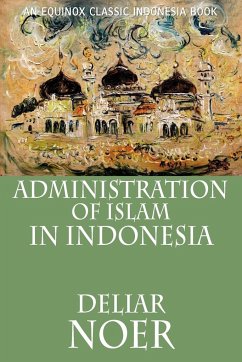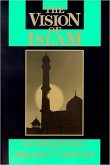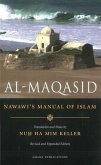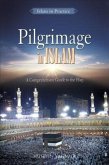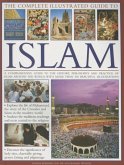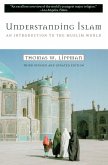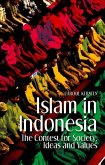With the size of its Muslim population greater than in any other country-an overwhelming majority of its 135 million people regarding themselves as adherents of Islam-it is natural that for Indonesia serious questions should arise as to the position of Islam within the state. Indeed that has been the case, and ever since the country proclaimed its independence there has been an ongoing tension between the attempts of Muslims to shape society in conformity with the tenets of Islam and the efforts of successive governments to control that religion as a political and social force. Although an increasing number of scholarly studies have been concerned with the endeavors of Muslim leaders to influence the course of Indonesia's social and political development, very little has been written about the other side of this equation-the politics of the government for controlling and regulating Islam. In this essay Deliar Noer has broken important new ground by providing significant insights into this badly neglected aspect of the relationship. For this task Noer brings to bear strong credentials-extensive research on the political and social history of Islam in twentieth-century Indonesia, a solid training in political science and an intellectual integrity that has won him respect abroad as well as in Indonesia. He is the author of The Modernist Muslim Movement in Indonesia: 1900-1942 (Oxford University Press, 1973) and of numerous scholarly articles. After securing his Ph.D. in Political Science at Cornell University, he served as a lecturer or professor of political science at the University of North Sumatra, the Jakarta IKIP, where he was also Rector, the University of Indonesia, and at Griffith University in Australia. Under both the Sukarno and Suharto regimes he has won the reputation of being a principled scholar unwilling to compromise his honesty and objectivity-despite the pressures exerted by government. It was because of such pressure that in 1974 he was prevented from delivering his professorial address, "Partisipasi Dalam Pembangunan" (Participation in Development). This was a valuable contribution to the pool of ideas relevant to his country's development, and for this infringement of academic freedom his country is the poorer. Those concerned with understanding contemporary Indonesia are sure to be grateful to Noer for this present study. - George McT. Kahin, January, 1978
Hinweis: Dieser Artikel kann nur an eine deutsche Lieferadresse ausgeliefert werden.
Hinweis: Dieser Artikel kann nur an eine deutsche Lieferadresse ausgeliefert werden.

